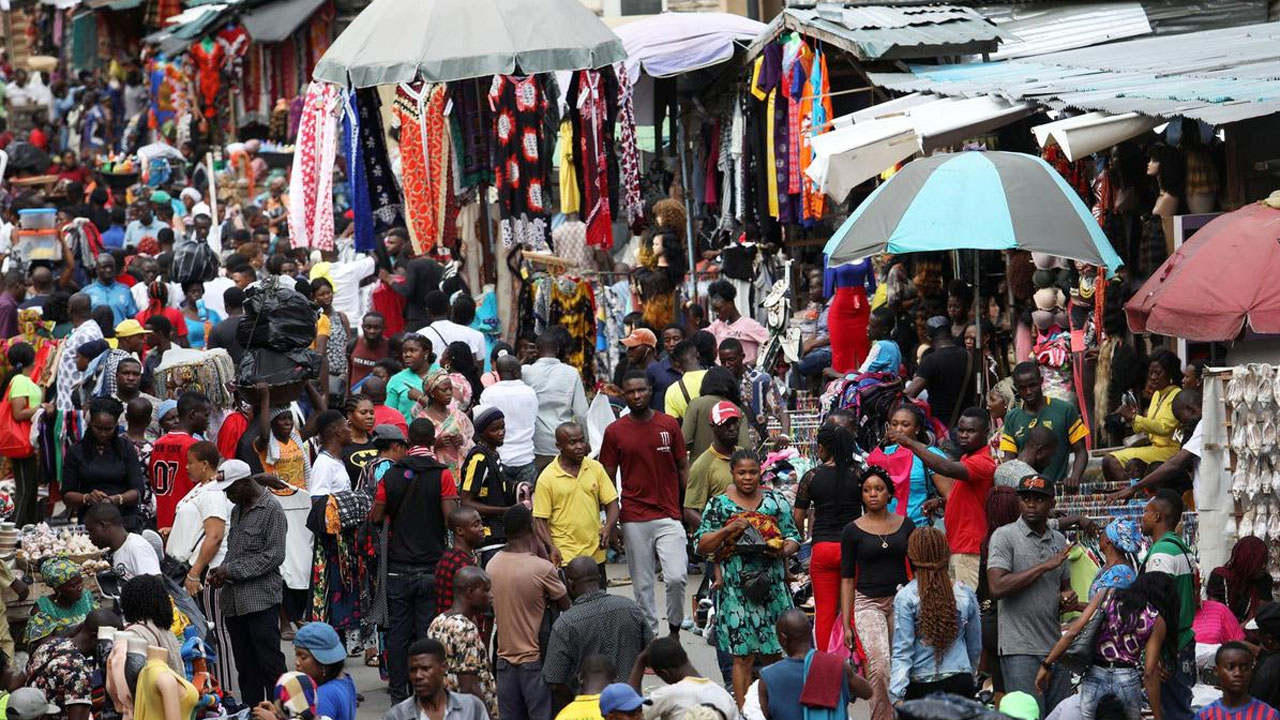Inflation and the Nigerian Economy

With oil and food
prices reaching record highs, Nigeria's inflation rate surged to an 11-month
high in May 2022, reaching 17.71 percent and marking its fourth consecutive
monthly increase in the year.
The Russia-Ukraine
situation, which has led to a large increase in energy costs and, as a result,
a rise in the cost of food and services, is to blame for the unprecedentedly
high inflation rates that the world is experiencing.
Nigeria appears to
be feeling the weight of the rise in commodity prices, even while the country's
inflationary pressure cannot be completely separated from the global
economic crisis, disruptions to the food supply, and worldwide
inflationary trends.
Germany's
inflation rate rocketed to 7.9 percent in May 2022; Ghana's rate rose 18.27
percent; all as a result of the global trend brought on by soaring crude oil
prices and sanctions on Russia's trade, among other things, according to
Nairametrics.
The trillions of
dollars that global central banks poured into the economy in 2020 to lessen the
impact of the COVID-19 epidemic are still having an impact on prices for goods
and services caused by the accumulation of liquidity.
To combat the
inflationary pressures, central banks around the world have increased their
interest rates.
Nigeria's Central
Bank also made its first hawkish move since July 2016 by raising its
interest rate by 150 basis points, to 13 percent. The action aims to attract
foreign investment into the economy to determine the continuity of the Nigerian
exchange rate while also helping to slow down the inflation rate's raging
speed.
Nigeria's
inflation is expected to continue to be high, and the country's high food costs
have caused concerns about food security. However, Washington-based
organization, the International Monetary Fund (IMF) predicted a
3.4percent annual rise in the GDP for 2022.
The Central Bank
of Nigeria (CBN) on the other hand blamed a series of factors, including
persistently high food and oil prices, production chain disruptions
brought on by the impact of Russian sanctions, exchange rate tension, capital
flow reversals, and underlying legacy constraints, for the inflation rate's
rise.
High inflation
essentially reduces the consumers' purchasing power and has an impact on all
aspects of one's spending.
What does this
mean for the Nigerian economy?
Nigerians will
have to pay more for imported products as a result of the rising global rate of
inflation, which will increase demand for foreign currency and cause the local
currency to continue to depreciate. The Naira is presently selling at N420.5 to
$1, down from the average of N416 to $1 seen during the past year, according to
the official forex market. This is indisputably true regardless of
the Central Bank's ongoing market interventions to control exchange rate
volatility. The naira is currently trading above N600 to a dollar, despite
beginning the year at N565/$1. On the other hand, the currency has experienced
a harsher decline in the unregulated markets like the parallel and P2P markets,
where it is less regulated.
The CBN Treasury
Bills already printed a negative yield of nearly 11.6 percent in its most
recent t-bills auction, and the FGN Savings Bond printed a negative real yield
of 9.55 in June 2022, thus the apex bank is expected to implement further harsh
measures to stop the growing inflation.
Due to the rise in
interest rates, banks will now grant credit to Nigerian businesses at greater
rates than they did when the rate was set at 11.5 percent. At the upcoming MPC
meeting, the Central Bank is expected to increase interest rates further due to
the persistently high inflation rate.
The average price
of diesel in Nigeria increased by 181% to N671.1 per liter in May 2022,
according to data from the National Bureau of Statistics. Given that some
establishments are now selling diesel for as much as N850 per liter, it is
anticipated that the price would increase. A 12.5kg cylinder of cooking gas was
refilled for an average price of N8,726.3 in May, while the cost of home
kerosene climbed by 87 percent to sell for N679.5 on average. This suggests
that Nigerians will continue to struggle with the high cost of energy,
particularly given the fact that the nation's electrical supply is still well
below the necessary levels.
As a result of
academic institutions revising their fees due to the devastating increase
in running costs, Nigerian students studying at home and abroad are set to pay
higher tuition fees. Students in public tertiary institutions have been
compelled to stay at home as a result of the ASUU nationwide strike, which has
persisted for more than four months. Students in private universities will also
pay higher tuition fees.
The majority of
the recent considerable rises in food prices were ascribed to rising
transportation costs, fluctuating exchange rates, seasonal variations, and
other factors.
According to a
recent Nairametrics poll on food prices, the cost of rice and onions rose by
9.12% and 57.4%, respectively. As a result, high inflation and the ongoing
increase in food costs globally result in high commodity prices in Nigeria and
a steady decline in people's purchasing power.


Be the first to comment!
You must login to comment